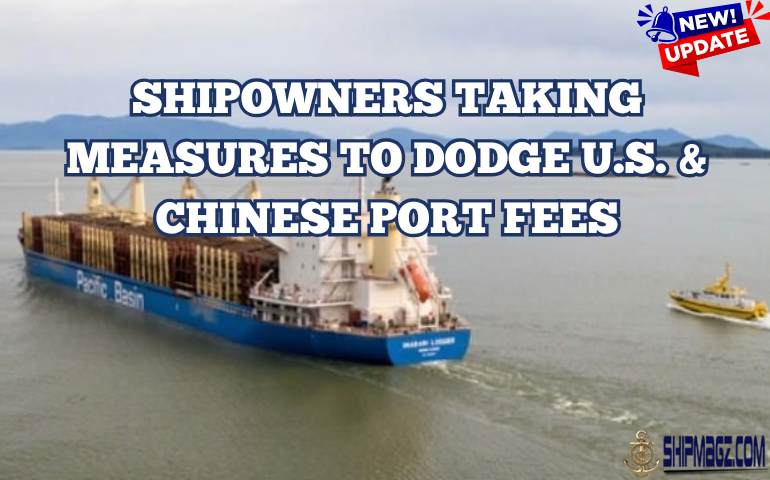Shipowners Taking Measures to Dodge U.S. & Chinese Port Fees
Publish Date:

Some shipowners are reconfiguring their fleets and corporate structures to avoid new port fees introduced by the U.S. and China.
They are flagging vessels to Singapore, changing ownership or management chains, and redeploying ships on alternate routes.
But gray areas around “ownership” interpretation still pose uncertainty.
These actions reflect how rising regulation is reshaping maritime strategy.
This move could heighten freight rate volatility and strategic realignment across shipping networks.
They are flagging vessels to Singapore, changing ownership or management chains, and redeploying ships on alternate routes.
But gray areas around “ownership” interpretation still pose uncertainty.
These actions reflect how rising regulation is reshaping maritime strategy.
This move could heighten freight rate volatility and strategic realignment across shipping networks.
Background
New port fees have been introduced by both the U.S. and China targeting vessels built, owned, or operated by companies in those countries. These fees aim to penalize or regulate traffic tied to those jurisdictions.
Steps Shipowners Are Taking
- Flag & Registry Changes: Many operators are re-registering ships under Singapore flags. For example, Pacific Basin is shifting much of its fleet and operations toward Singapore-based vehicles.
- Corporate Restructuring: Some companies are adjusting board membership, shifting strategic leadership, and changing legal ownership to avoid fee triggers.
- Route & Deployment Adjustments: Ships that would otherwise dock in the U.S. or China may be redeployed on alternate routes or through intermediate ports to minimize exposure.
Challenges & Ambiguities
- Ownership vs. Control: It is unclear how authorities will interpret “ownership,” especially for publicly traded companies with dispersed shareholders.
- Regulatory Certainty: Companies are calling for clearer rules from U.S. and Chinese authorities, as existing regulations leave room for varying interpretations.
- Cost & Market Impact: These shifts could increase freight rate volatility and force more self-sanctioning, where certain vessels avoid U.S./China calls altogether.
Implications for the Shipping Industry
- Rising cost pressures and regulatory compliance burdens.
- Shift toward neutral or third-country flags and operations.
- Growing importance of transparent ownership, control, and global compliance.










